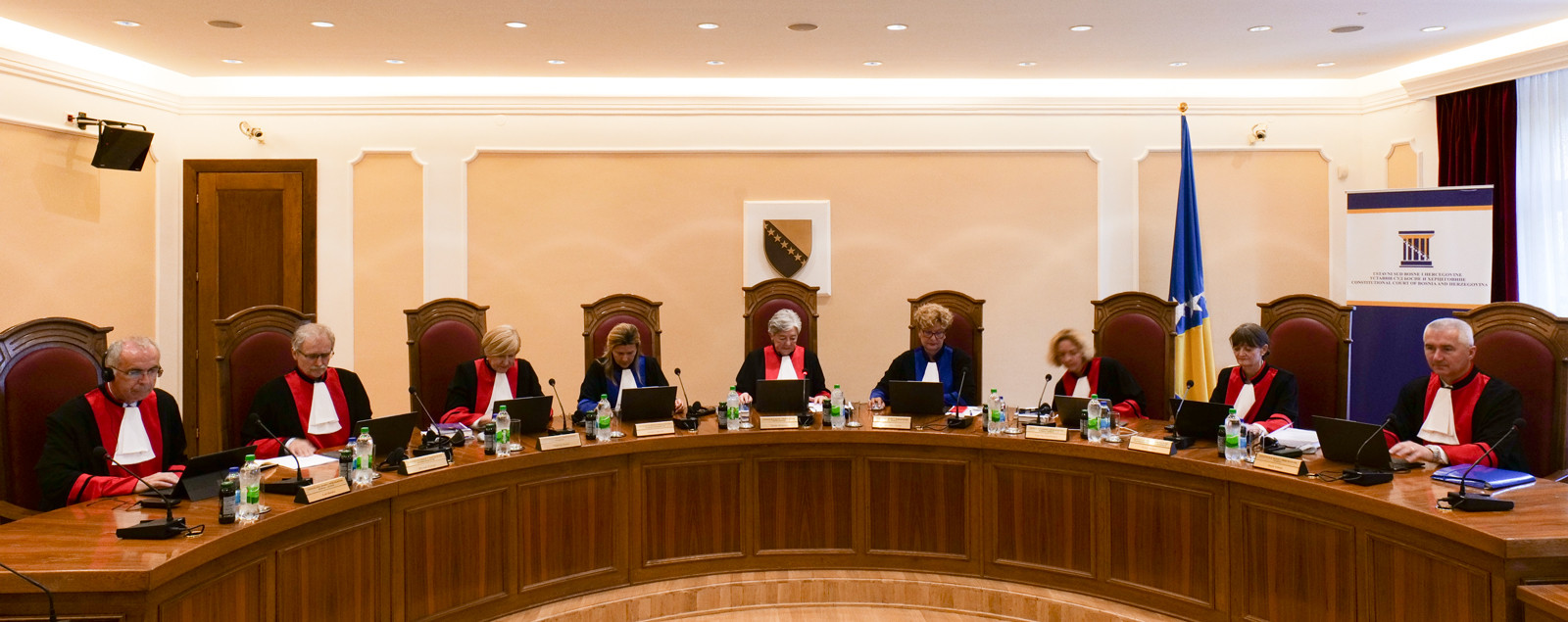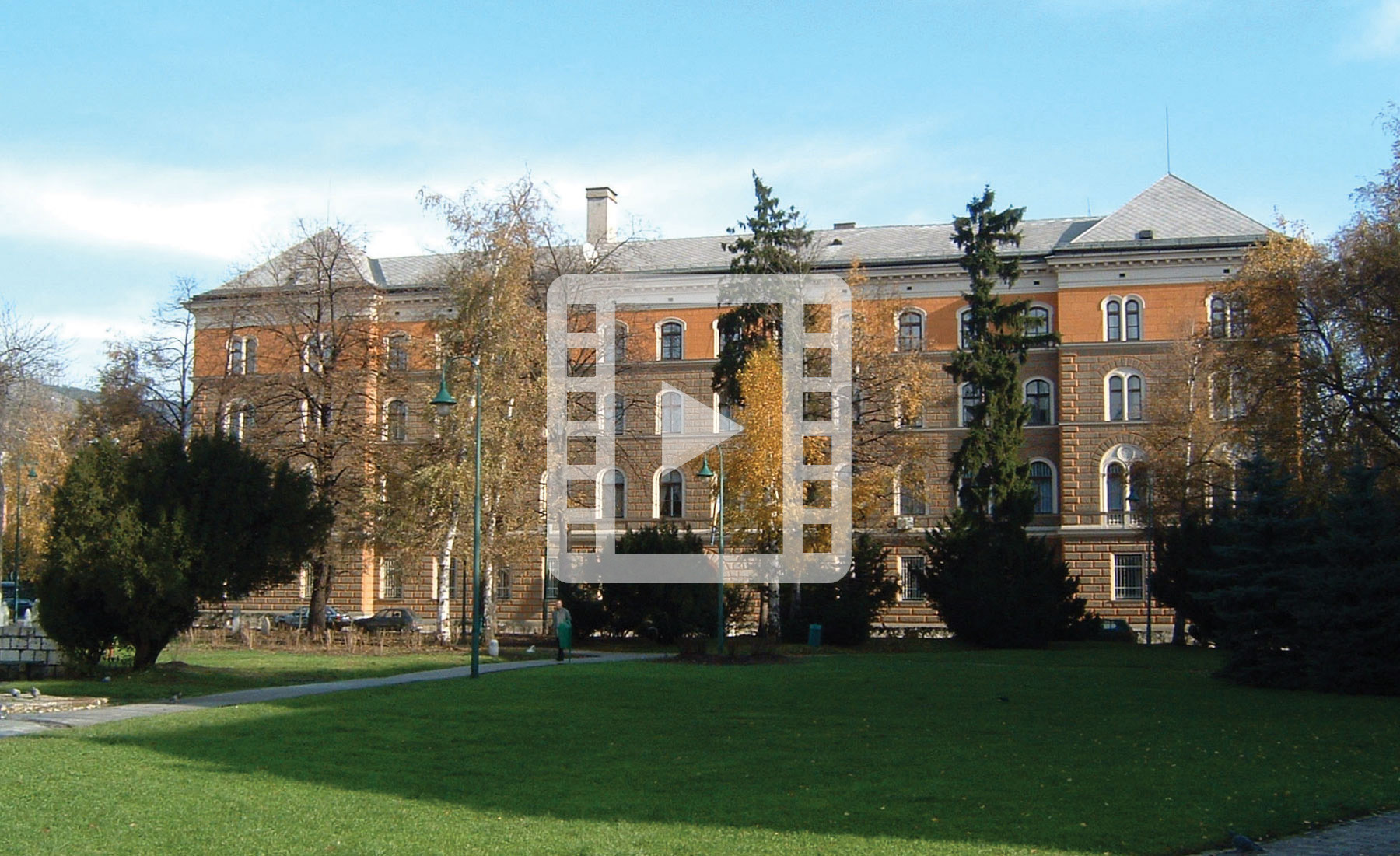At the continuation of the 146th Plenary Session, the Constitutional Court of Bosnia and Herzegovina examined a huge number of appeals, out of which it singles out the following relevant decisions:
AP-1795/21 (Emela Kapidžija) – In this case the Constitutional Court concluded that the prescription of ban on displaying religious symbols with the Armed Forces of Bosnia and Herzegovina has not amounted to a violation of the appellant’s right to express her religious beliefs. That restriction is lawful and pursues a legitimate aim given that the wearing of religious symbols in the Armed Forces of BiH, as well as in any other public service, or display of such symbols on the official premises, could affect the protection of the rights and freedoms of others, and could possibly cause bad interpersonal relationships among the soldiers of the Armed Forces of BiH; it could also amount to distrust of citizens in the army and cause the society's sensitivity to religious symbols in public domain, and could violate the principle of neutrality towards the entire public of Bosnia and Herzegovina which applies to all members of the Armed Forces of BiH, because they are prohibited from wearing visibly prominent religious symbols with their uniforms. Taking into account the margin of appreciation that must be afforded to the States in the light of the principle of neutrality of the public service, which also includes service in the Armed Force, and having in mind the case law of the European Court of Human Rights, the Constitutional Court concluded that the contested interference with the appellant’s right was justified and proportionate to the aim sought to be achieved, that is, that the ban on wearing the hijab (or any other religious symbol) was a necessary measure in a democratic society and that by this ban the appellant was not discriminated against on any grounds nor that there exists a violation of other rights and freedoms that the appellant invoked.
AP-2758/21 (S.M.) – In this case the Constitutional Court concluded that there has been a violation of the right to a general prohibition of discrimination on the grounds of sex – pregnancy because the reasons given in the challenged judgements cannot justify different treatment of the appellant within the framework of the employment relations (the employer assigned the appellant to a lower-level job position following her return from maternity leave and following the exercise of her right to a half-time job after the maternity leave). Hence, the different treatment towards the appellant was not a "necessary measure in the given circumstances".
AP-940/22 (M.D.) – In this case the Constitutional Court concluded that there has been a violation of the appellant’s right to liberty and security of person, since the procedure prescribed by the Law on the Protection of Persons with Mental Disorders was not complied with during the appellant's placement and stay in the Public Institution “Institute for Mentally Disabled Persons Drin” (“the Institute”) for an indefinite period. The Constitutional Court determined that the decision on the appellant's placement in the Institute was never made by a court or by any other independent body, nor did the court periodically review the justification of the appellant’s stay in the Institute.
AP-4091/23 (Nedim Uzunović) – In this case the Constitutional Court concluded that the appellant's right to freedom of movement was violated because the Court of Bosnia and Herzegovina failed to serve on the appellant the additional observations of the Prosecutor’s Office of Bosnia and Herzegovina, which the Court of Bosnia and Herzegovina assessed in particular when rendering a decision on the need of a continued existence of the provisional prohibiting measures.
In addition, at the Plenary Session the Constitutional Court adopted decisions on admissibility rejecting certain appeals as inadmissible for being manifestly (prima facie) ill-founded, and rejecting some other appeals as inadmissible because the appellants did not supplement/specify the appeals within the set deadline, or because the appeals were premature or ratione materiae incompatible with the Constitution of Bosnia and Herzegovina.



